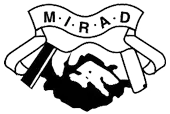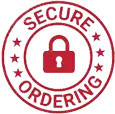Clone Number Plates Drivers at Risk of Unfair ULEZ Fines
Reg Plates ArticleClone Number Plates Drivers at Risk of Unfair ULEZ Fines

British drivers are facing a growing concern: receiving fines for London's Ultra Low Emission Zone (ULEZ) even when they haven't set foot in the city. This alarming situation arises from a practice known as number plate spoofing, where criminals copy the license plate of a legitimate vehicle and attach it to their own, often non-compliant, car. This allows them to drive freely within the ULEZ zone without paying the daily charge, leaving the rightful owner to face the consequences.
The ULEZ, implemented in 2020, aims to improve air quality in London by charging a daily fee to vehicles that don't meet certain emission standards. While the scheme has its supporters, the issue of number plate cloning poses a significant challenge. Statistics from Transport for London (TfL) reveal a concerning trend: in the past two years alone, over 19,000 ULEZ charges were overturned after drivers successfully proved their plate had been copied. This translates to a substantial number of innocent individuals facing the hassle and financial burden of contesting unfair fines.
The estimated number of cloned plates across the UK is even more alarming, with figures suggesting around 27,000 cases annually. This widespread practice not only targets ULEZ zones but also poses various other security risks, including:
Fuel theft: Criminals can use cloned plates to fill up their vehicles and drive away without paying.
Avoiding tolls and parking charges: By using a cloned plate, criminals can bypass toll roads and paid parking areas, leaving the rightful owner potentially facing the charges.
Committing crimes and evading detection: Criminals can use cloned plates to avoid being identified while committing various offenses, further jeopardizing the safety and security of law-abiding citizens.
So, what can be done to address this growing problem? Here are some steps drivers can take to minimize their risk:
Regularly check your vehicle: Take a close look at your number plate to ensure it hasn't been tampered with. Any signs of tampering, like loose screws or glue residue, should be investigated immediately.
Register your number plate with the DVLA: The Driver and Vehicle Licensing Agency (DVLA) offers an online service to register your number plate. This can help authorities identify the rightful owner in case of a cloned plate incident.
Consider security measures: Adding a security screw to your number plate can make it more difficult for criminals to remove it. Additionally, some companies offer specialized security plates with unique markings that are harder to replicate.
Report any suspicious activity: If you suspect your number plate has been cloned, report it to the police immediately. This will help authorities track down the criminals and prevent further misuse of your plate.
It's crucial for authorities to take action as well. Increased vigilance and robust enforcement measures are necessary to deter criminals and disrupt the illegal number plate cloning market. Additionally, exploring technological solutions like enhanced license plate recognition systems with advanced security features could further strengthen the defence against this growing threat.
The issue of number plate spoofing highlights the vulnerabilities within the current system and the need for a multi-pronged approach to address it. By taking preventative measures, staying informed, and cooperating with authorities, drivers can minimize their risk of falling victim to this deceptive practice. However, it is equally important for policymakers and law enforcement to prioritize tackling the root causes of this problem and develop robust safeguards to protect innocent individuals from facing unfair consequences.
It all started back in 1991 when our love and obsession for private number plates was born.
Since then we have grown steadily over the years to become a leading light in the private number plate industry holding our own stock of high quality number plates and many thousands of registrations we are selling for trade and private clients including many celebrities and sports personalities.


- FREE TRANSFER SERVICE - your paperwork is handled by our trained team
- OVER 30 YEARS EXPERTISE - long established and trusted company
- DVLA RECOGNISED RESELLER - linked directly from the DVLA website
- TRADE ASSOCIATION MEMBERS - MIRAD and CN Guild members


